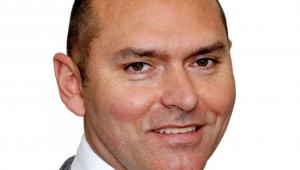Speaking at the CIPFA fringe event at the Labour party conference in Brighton, Johnson, a research fellow at the free-market Centre for Policy Studies, said pension reforms introduced by the last government had not effectively addressed affordability, which remained unsustainable.
In addition, the schemes needed to respond to wider changes to the pension landscape following the liberalisation introduced by Chancellor George Osborne.
“The public loves freedom and choice and liberalisation,” Johnson stated. “There’s political currency to be had in tackling some of the issues around pensions and my preferred outcome over the next three to five years is that someone within the public sector gets onto the front foot when they look at the numbers and say, ‘this isn’t sustainable and here are some proposals that we think can put our schemes on a suitable footing’.”
The warning come after Chris West, executive director of resources at Coventry City Council, warned that LGPS pension costs could amount to 20% of the council’s net budget and a staggering 34p of every £1 collected in council tax by 2020.
Johnson said the alternative to proactive change was that “in three or five or seven years, there is top-down diktat that comes in as a knee-jerk reaction that could be far more severe, and I’d rather that didn’t happen.”
Paul Woolston, chair of the North East Local Enterprise Partnership, told the meeting that he hoped the public sector would come together to develop plans on pensions.
“One of the few benefits of austerity is that it can drive innovation and look at new ways to do things and I think it would be great if public services were able to get hold of this problem and deal with it themselves in an innovative way.”
However, responding to Johnson’s comments in the session, GMB national secretary Brian Strutton said cash flow “was not the problem”.
He went on: “The problem is the amount that employers are having to pay in to have effective recovery [of scheme deficits]. That is a genuine problem, but it’s a completely different thing, and that is something that the LGPS take very, very seriously. Deficits are an issue we have to face.”












